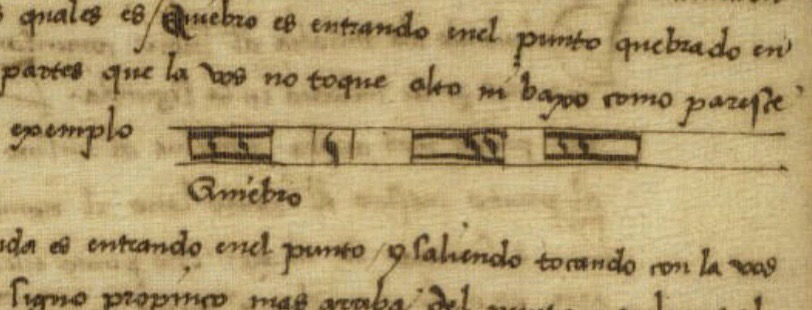Juan de Lucena on those who Improvise Counterpoint ‘por uso’ (1463)
- Tim Braithwaite

- Apr 24, 2022
- 1 min read
‘The Music, lovely science, awakens the spirits and comforts people. There is nothing as sweet as hearing different voices intoned without discord. If people in Castilla sang by reason, like musicians, we would be better tuned. But since everyone sings “by ear” [por uso], when one person sings in the soft hexachord the other one sings in the hard hexachord, and when one person sings on a line, the other one sings on a space. The fabordón way of singing [el cantar fabordón] and the out of tune playing [sonar al destempre] reveal what we deserve.’
‘La música, sciencia enamorada, despierta el espírtu, y la persona recrea. No es cosa tan suaue como oyr diuersitat de vozes sonoras entonadas sin discordia. Sy todos cantásemos, señor Obispo, en esta nuestra Castilla por razon, como músicos, seríemos mejor acordados; mas cantando por uso, sy el uno en bemol, el otro en bequadro; el uno va en regla, sy el otro en espacio. El cantar fabordon, y sonar al destempre, denuncia lo qu “esperamos. ¡Quiera Dios mentirir los augurios!”’
*Notes*
Juan de Lucena, Libro de vida beata (Rome, 1463); modern edition in Opúsculos literarios de los siglos XIV á XV, ed. Antonio Paz y Meliá (Madrid: Sociedad de Bibliófilos Españoles, 1892): 103–205: Translation from Giuseppe Fiorentino, “Contrapunto and Fabordón: Practices of Extempore Polyphony in Renaissance Spain,” in Studies in Historical Improvisation: From Cantare Super Librum to Partimenti, ed. Massimiliano Guido (New York: Routledge, 2017) 83–101.
The image below is from an altarpiece painted by Hans Memling, commissioned in 1487 to decorate the organ of the Santa María la Real of Nájera.





Comments